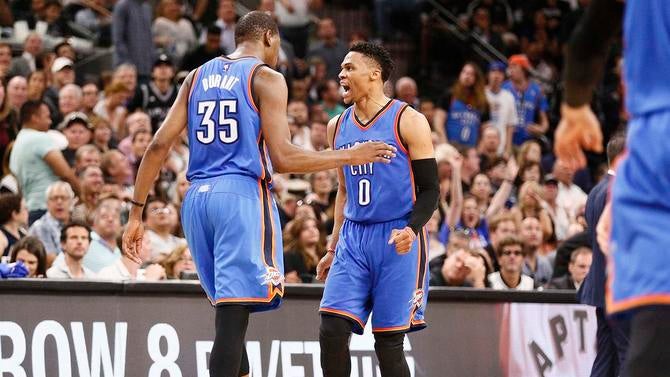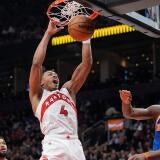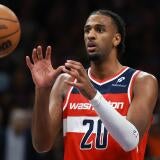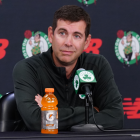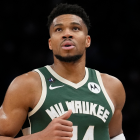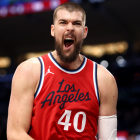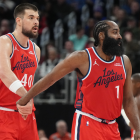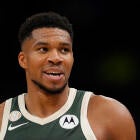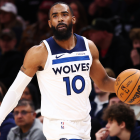Report: Kevin Durant's frustrations with Russell Westbrook led to departure
Did Durant feel the duo had plateaued and that's why he went to the Warriors?

Is Russell Westbrook the reason Kevin Durant left the Oklahoma City Thunder for the Golden State Warriors? Westbrook is a dominating force on offense, but his relentless attacking can be both a gift and a curse. It's the reason he's so good and the reason the offense can get into trouble at times. Tunnel vision can occur and individual matchups can become more focused upon than the game plan. However, he has also improved his point guard duties in many ways while forming one of the best duos in the NBA before Durant's departure.
Howard Beck of Bleacher Report writes that Westbrook's ball dominance on offense and stagnation of the movement was something that frustrated Durant. The coaching change of Scott Brooks to Billy Donovan didn't help things enough to keep K.D. from feeling as though the duo had plateaued in what they were capable of doing. Losing to the Warriors after going up 3-1 in the Western Conference finals may have been that final wakeup call if that's the case.
Their partnership produced four conference finals appearances, and one trip to the Finals, in the last six years. It also produced a simmering frustration that, in essence, paved the way for his exit.
Durant wanted an offense that kept the ball moving and provided him easier scoring chances. The Thunder fired coach Scott Brooks, brought in Billy Donovan, and still the offense stalled out at key moments, often with Westbrook dribbling into oblivion. The Thunder led the NBA in blown fourth-quarter leads last season, despite their firepower.
"Ultimately he got frustrated and felt that they had plateaued," said a person with insight into Durant's thought process. "[Donovan] came in, and he still had the same issues that he had with Russ under Scotty. The offense didn't change much. He still had to take a ton of contested shots every game; and that's when he had the ball at all."
Injuries over the years have made judging their offensive numbers a bit tricky from season to season. But when these two were on the floor together, they were pretty deadly. Here are the offensive ratings with these two on the floor together over the past four seasons since James Harden was traded:
2012-13: 81 games, 112.2 points per 100 possessions
2013-14: 46 games, 110.4 points per 100 possessions
2014-15: 27 games, 107.6 points per 100 possessions
2015-16: 72 games, 114.4 points per 100 possessions
The offense was better under Billy Donovan. The big dip in efficiency from 2013-15 was likely due to the injuries they were trying to come back from and the unfamiliarity with the rhythm of the game that comes with injuries rather than not syncing up. Putting up 114.4 points per 100 possessions when your duo is on the floor is an absurd level of efficiency. That doesn't mean Durant didn't grow frustrated with Westbrook at times. Just because the numbers show it's better doesn't mean the level of frustration has to go down.
Those numbers should be better. Durant and Westbrook are far smarter and better players now than they were four seasons ago. You would expect progression, which technically happened. But what about the efficiency in fourth quarters? Let's take a look at that.
2012-13: 65 games, 116.3 points per 100 possessions
2013-14: 37 games, 118.4 points per 100 possessions
2014-15: 21 games, 107.5 points per 100 possessions
2015-16: 55 games, 113.9 points per 100 possessions
This is where you see some regression over the years. It's worse than it was four years ago, despite them being much better players now. And perhaps that frustration was quite real. Until a run during the playoffs against the San Antonio Spurs and half the series against the Golden State Warriors, the Thunder had real fourth-quarter problems throughout the 2015-16 campaign. Those not going away or regressing back to that level of play could've just been enough frustration to keep Durant from sticking in OKC.
Or maybe it was just a lot of things and not one scapegoat factor. Either way, Durant has moved on to the Warriors and Westbrook will have a decision to make a year from now in 2017 when he's a free agent.
